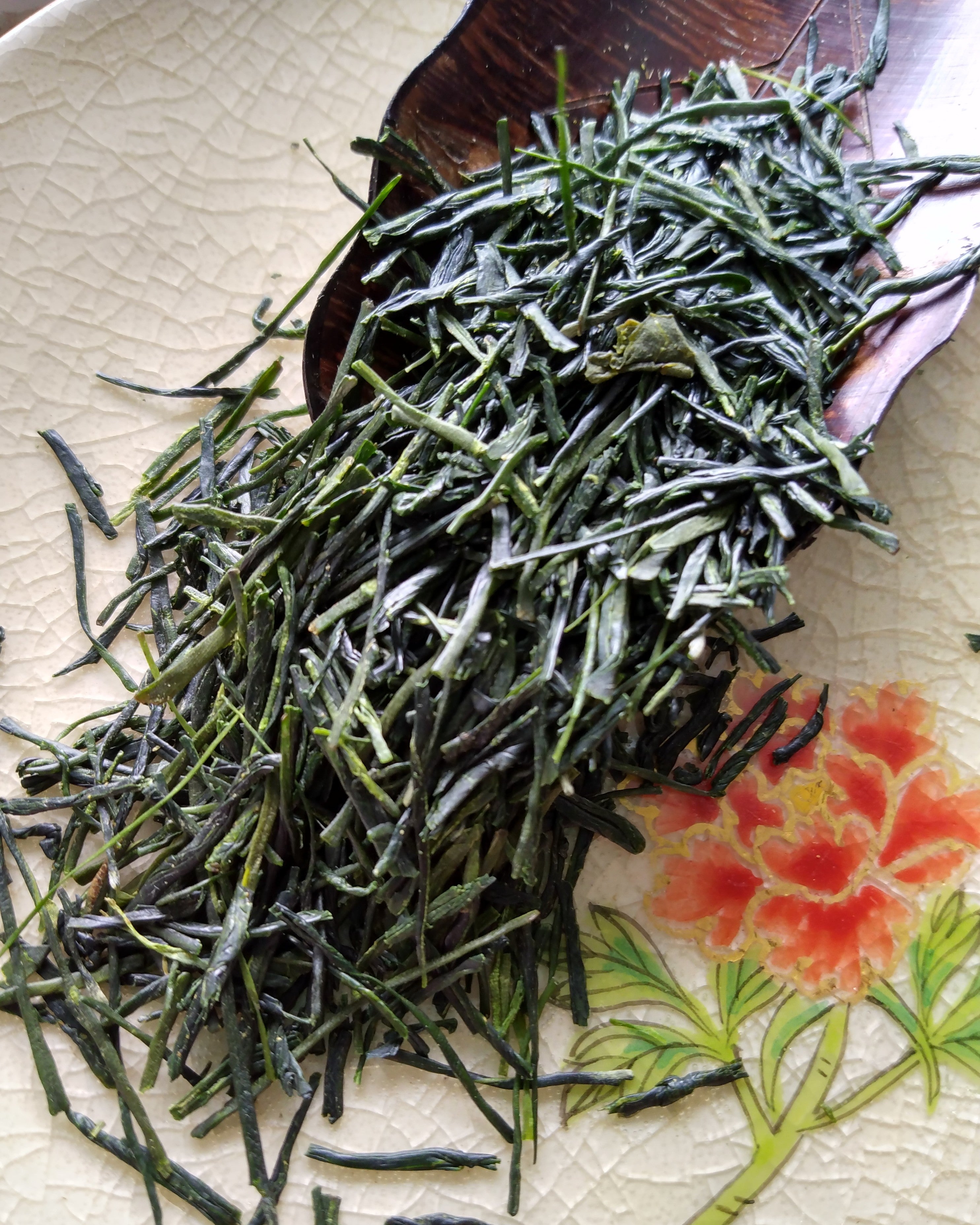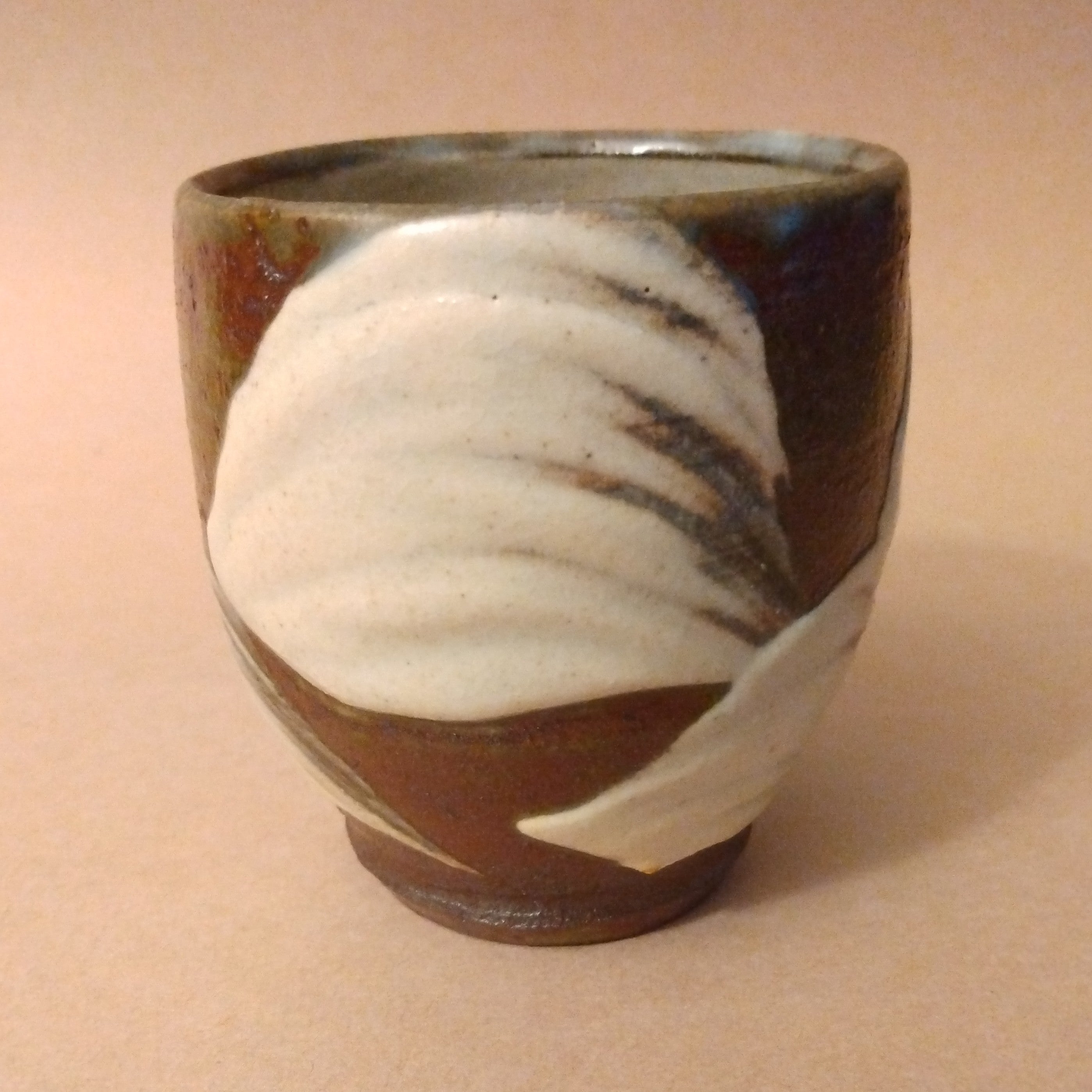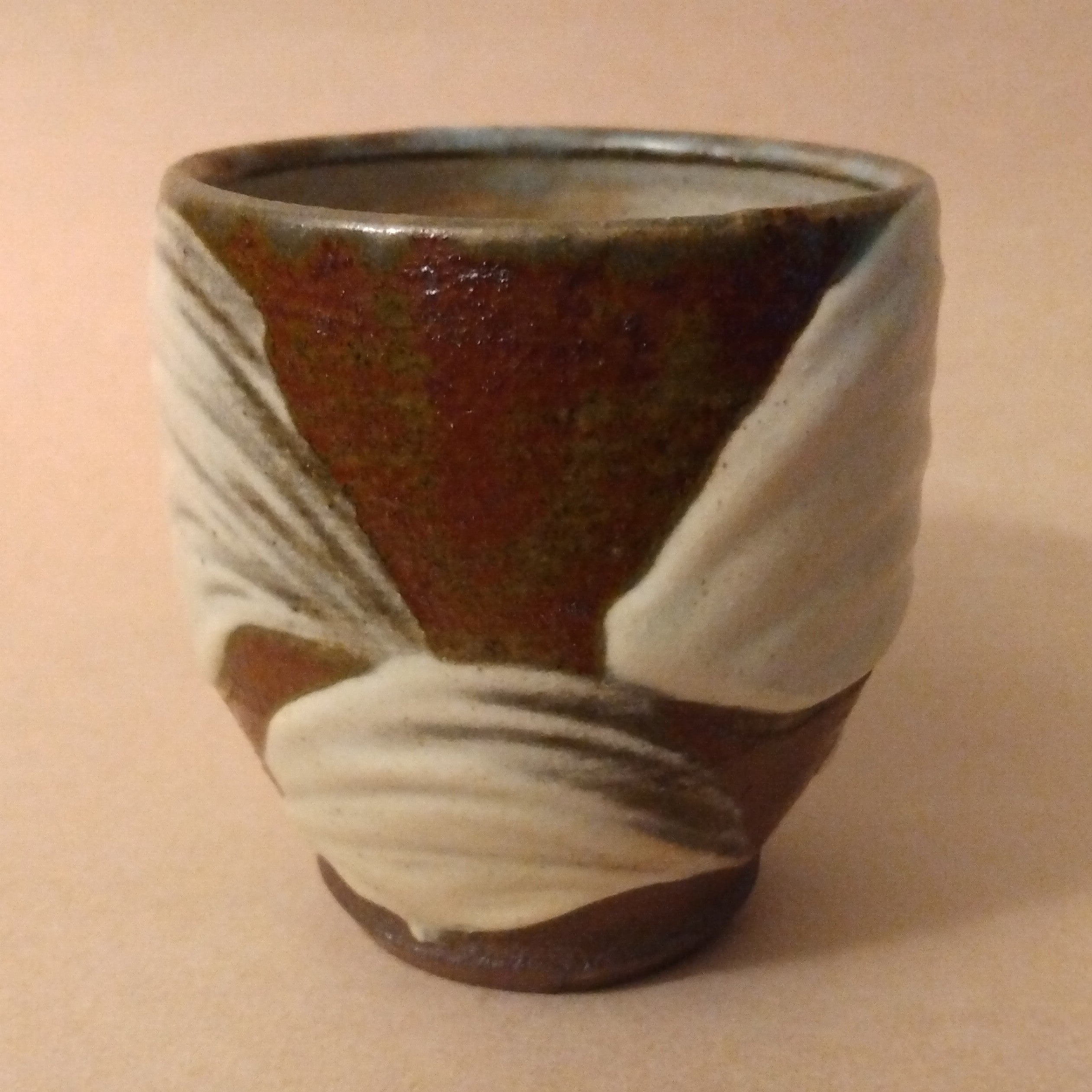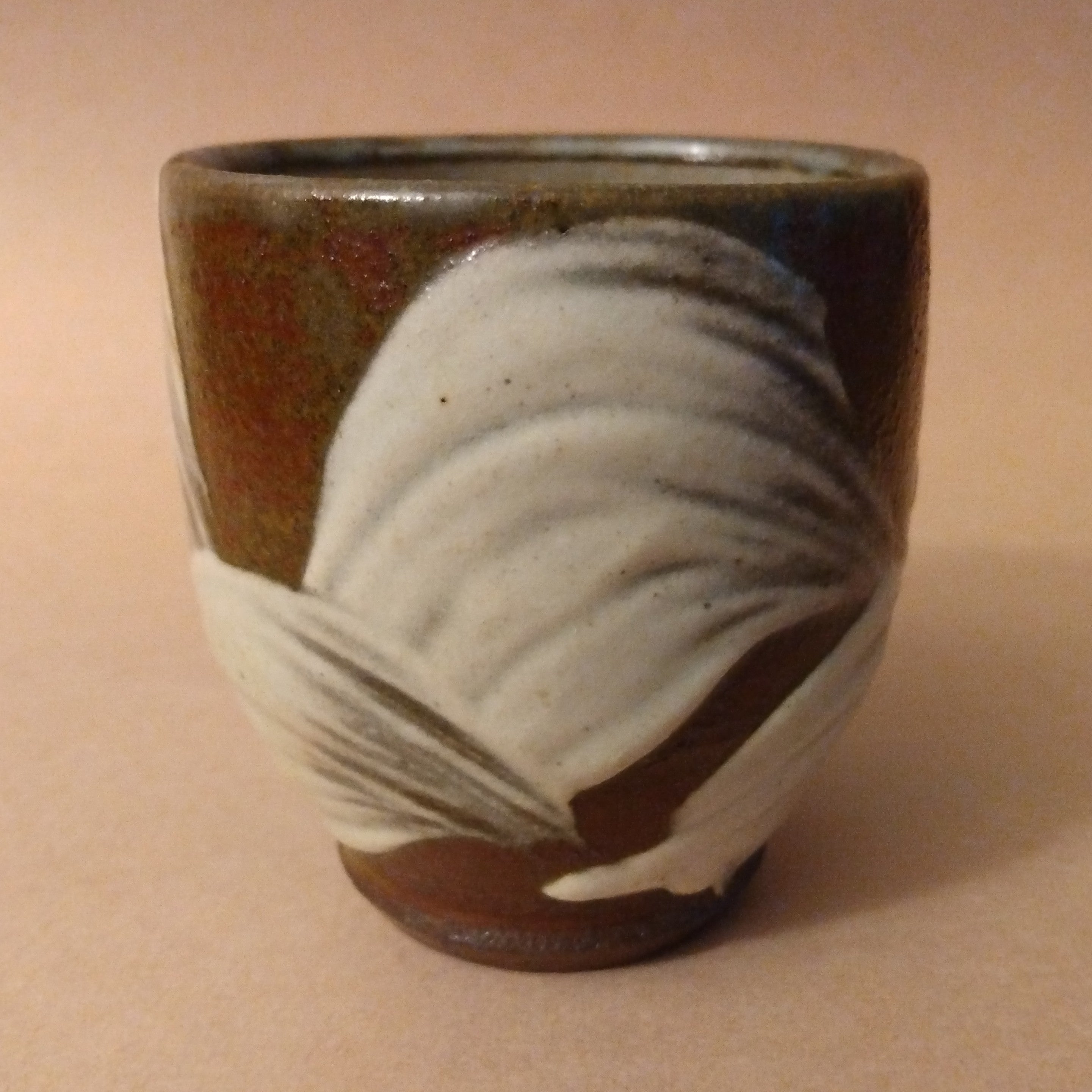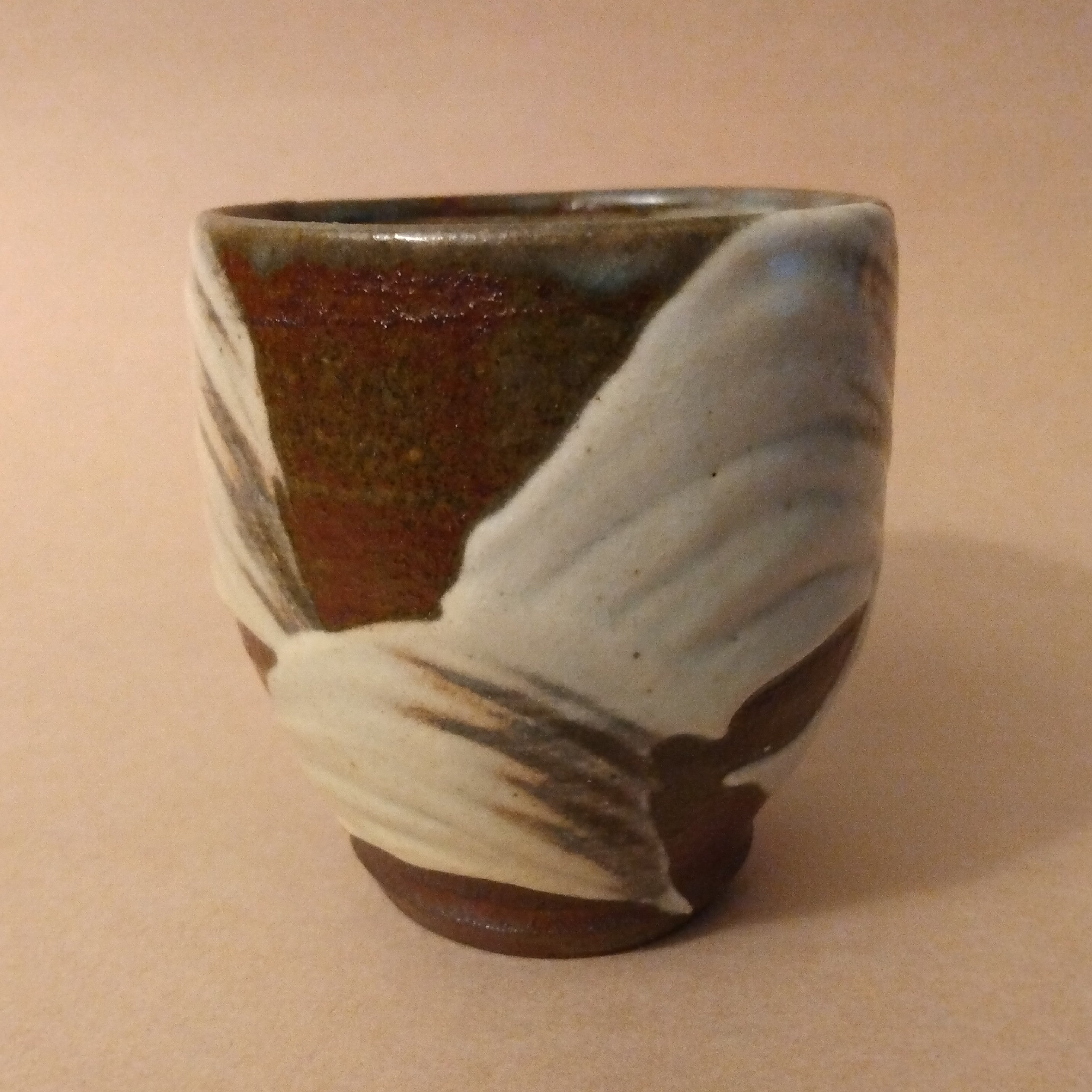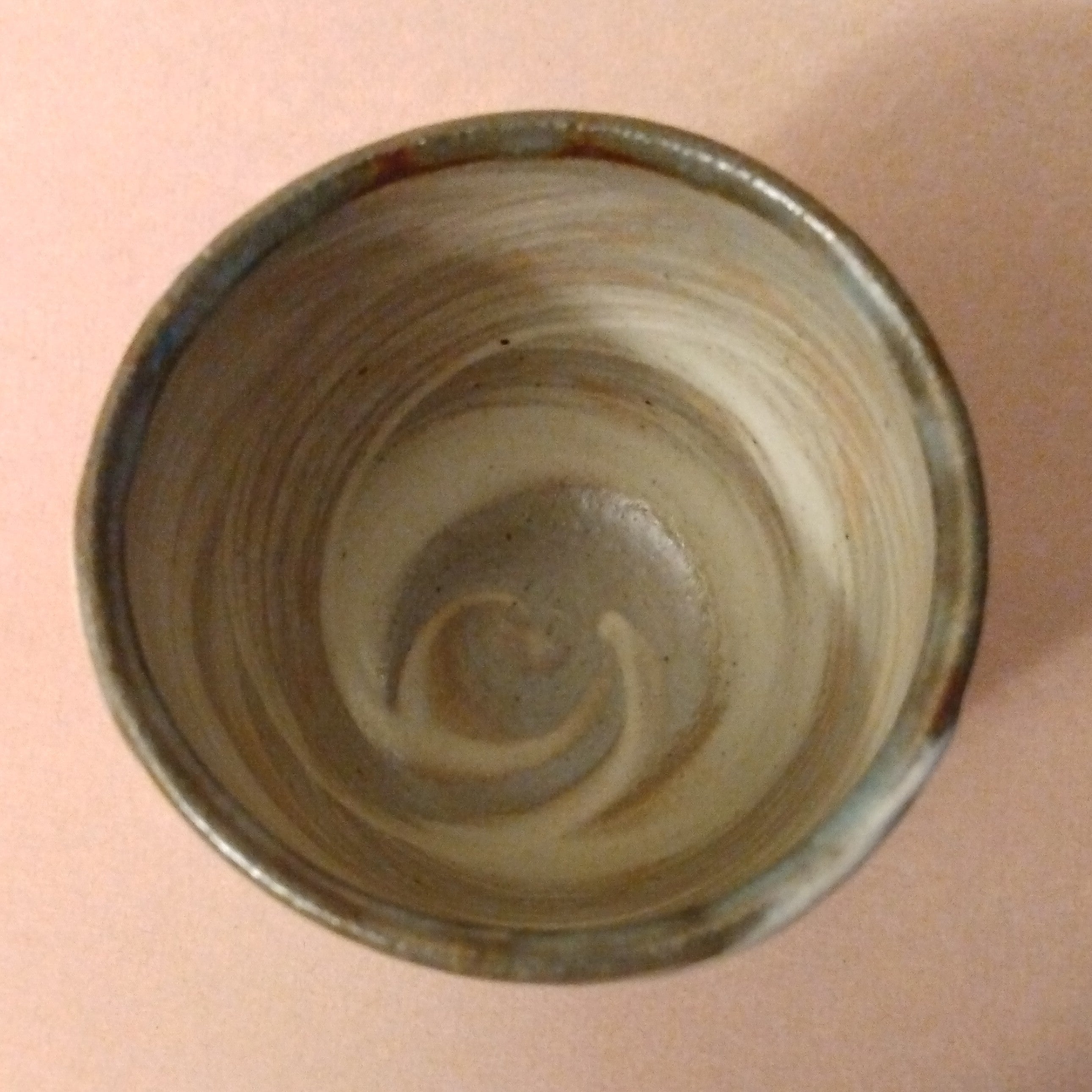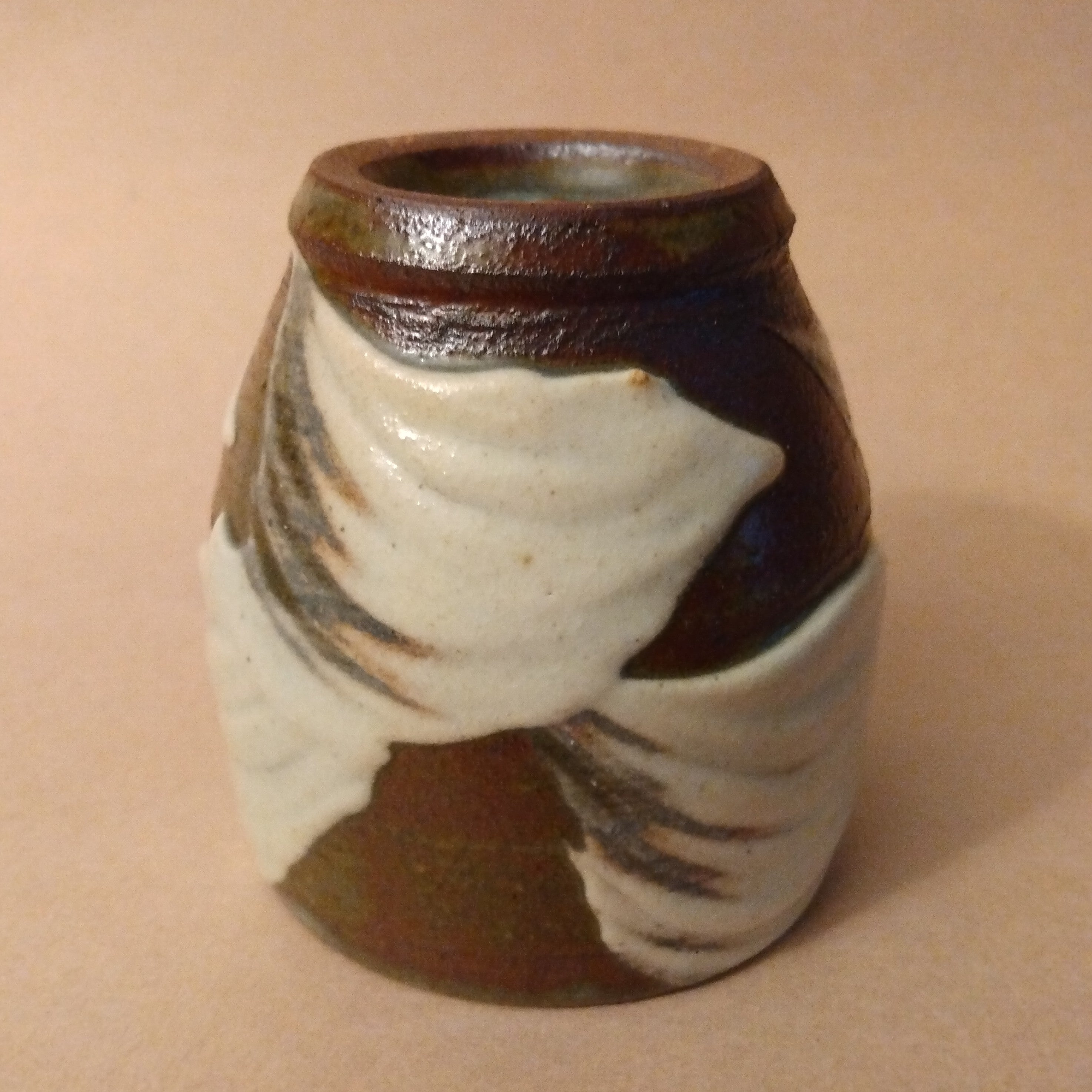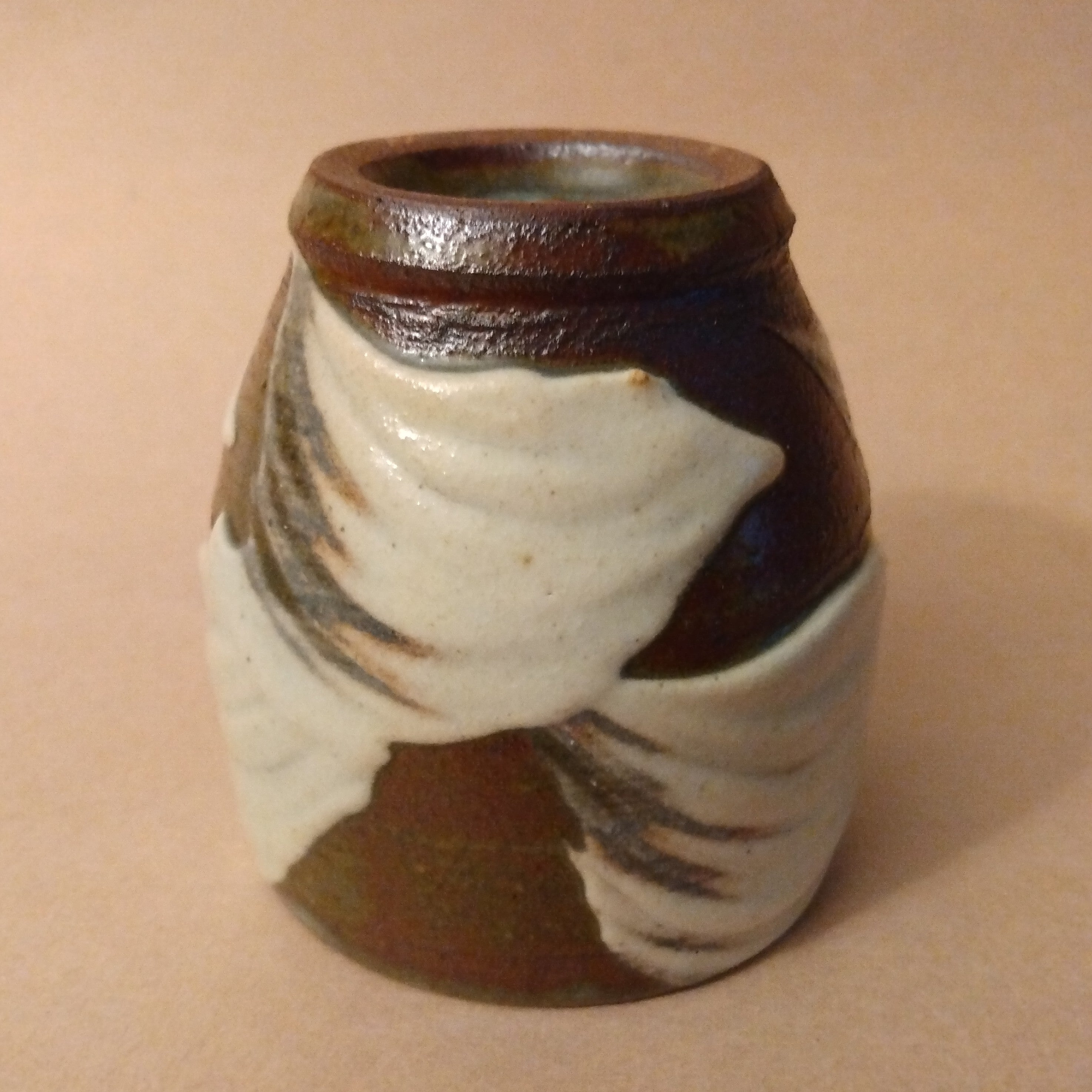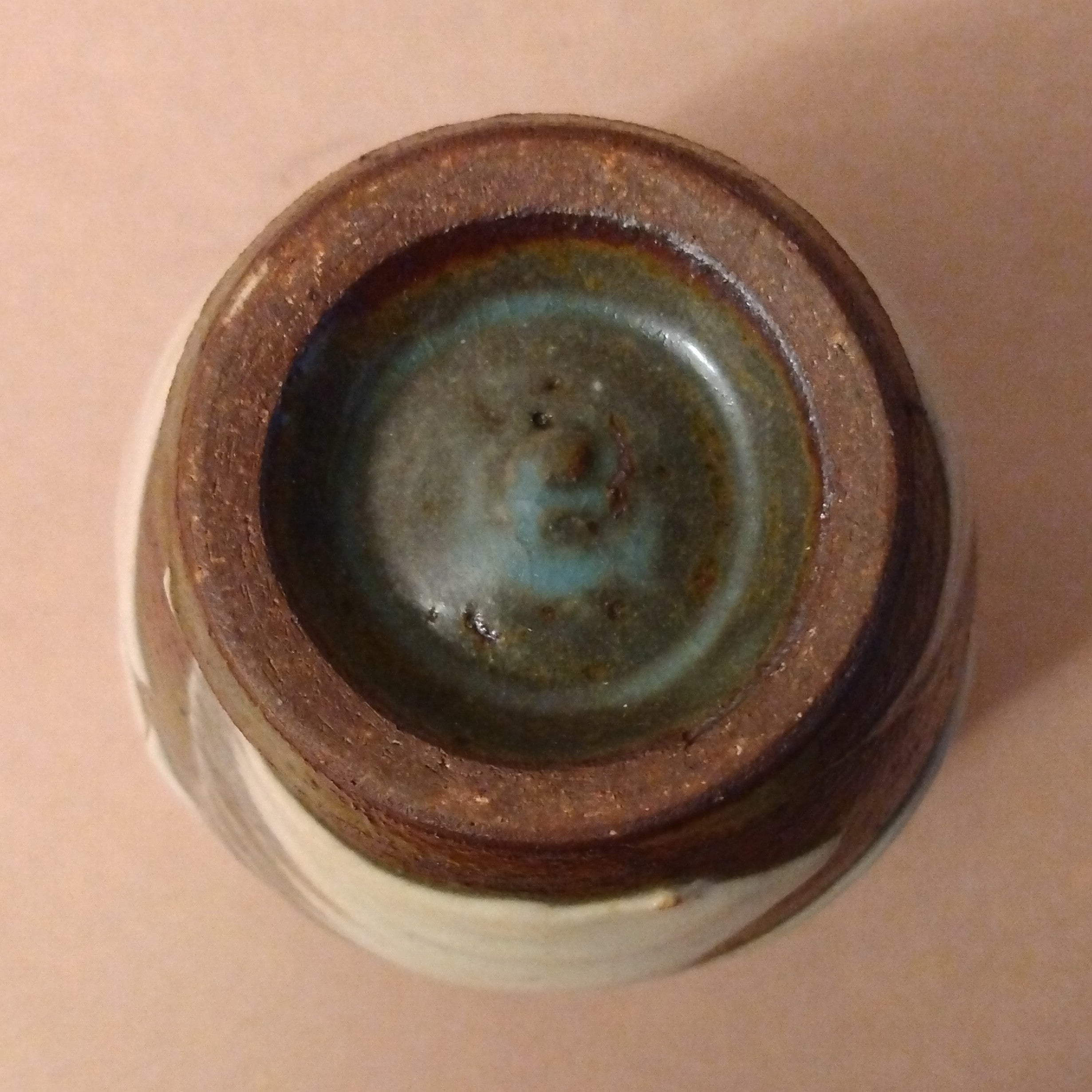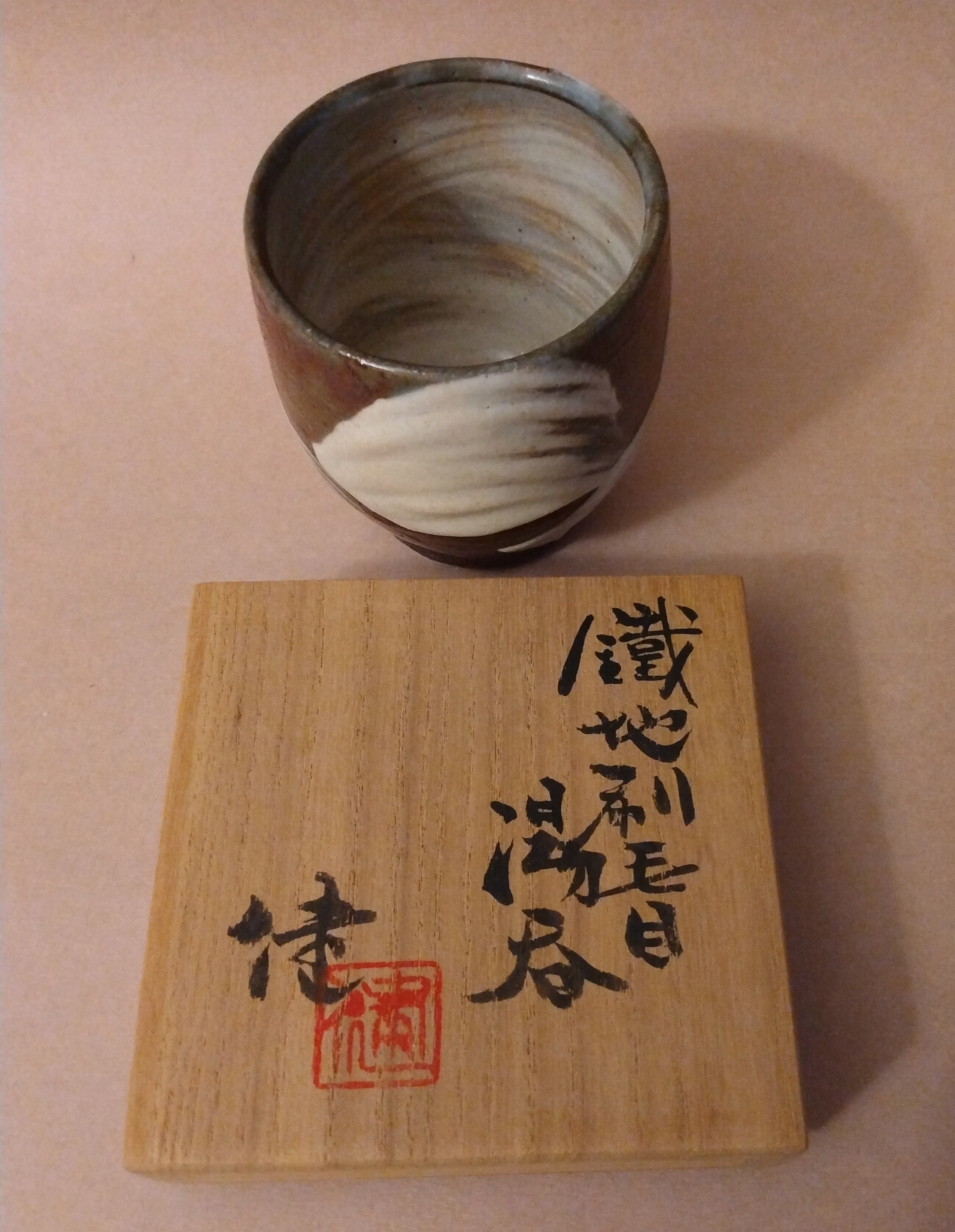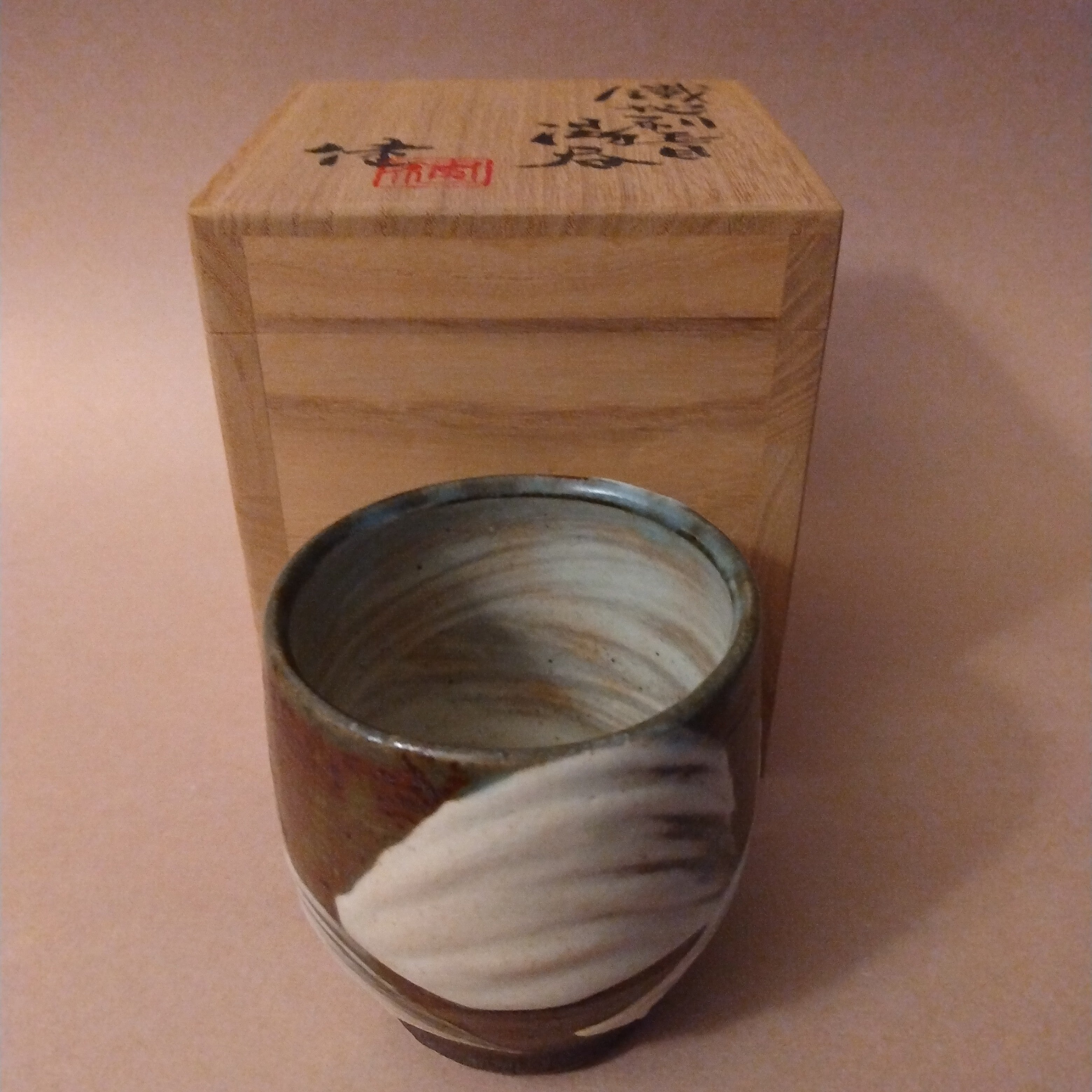Description
Yunomi (Tea Cup) by Matsuzaki Ken of Mashiko, with signed wooden box. Brush strokes of thick slip decorate this cup. H. 3"(7.5cm) x Dia. 2.625cm). Weight 152 grams. Volume 6oz.(180ml).
Matsuzaki Ken was born in Tokyo, in 1950, as the third son of a Nihonga (Japanese style) painter, Matsuzaki Shuki. After graduating from ceramics studies at Tamagawa University (Tokyo), he went to apprentice with Shimaoka Tatsuzo in Mashiko (Shimaoka, himself, was an apprentice of Hamada Shoji, and would later be designated a National Living Treasure in 1996). In 1977, Matsuzaki established his own kiln in Mashiko, now named Yuushingama.
His work has since been exhibited widely in Japan and in the West, especially in the U.S. and the U.K. He has also put on many ceramics workshops worldwide. His pottery spans a wide variety of ceramic styles; including glazed and unglazed (ash glazed) works, and those using glazes from the Mino area such as Shino, Yellow Seto, and Oribe. He is truly one of the premier contemporary ceramic artists working out of Mashiko today.
The town of Mashiko is located about 70 miles northwest of Tokyo, in Tochigi Prefecture. Although there is evidence of pottery manufacture in the region of Mashiko as far back as the 8th century; production in the modern age began in 1853, making it a relatively young pottery center by Japanese standards. However, whereas many traditional pottery towns disappeared when Japanese lifestyle changes made many functional clay items obsolete, Mashiko has survived and thrived as one of the largest pottery communities in the world. Much of this can be credited to life and work of Shoji Hamada, who decided to settle in this traditional clay village. Although he was a contemporary artist, he showed great respect for the work of traditional artisans, for the natural materials available from the region, and for the "Other Power" of tradition. He was a leading figure in the Japanese Folk Craft Movement, along with Soetsu Yanagi and others; such as potters Bernard Leach and Kanjiro Kawai, textile artist Keisuke Serizawa, and woodblock printer Shiko Munakata. Hamada was designated as a National Living Treasure for his preservation of Mingei (Folk Craftâ) pottery and promoted an openness which led many to follow his path to Mashiko. In the early 2000's, there are some 400 kilns operating in and around Mashiko making a wide variety of wares; from traditional styles and patterns to modern artistic works.
